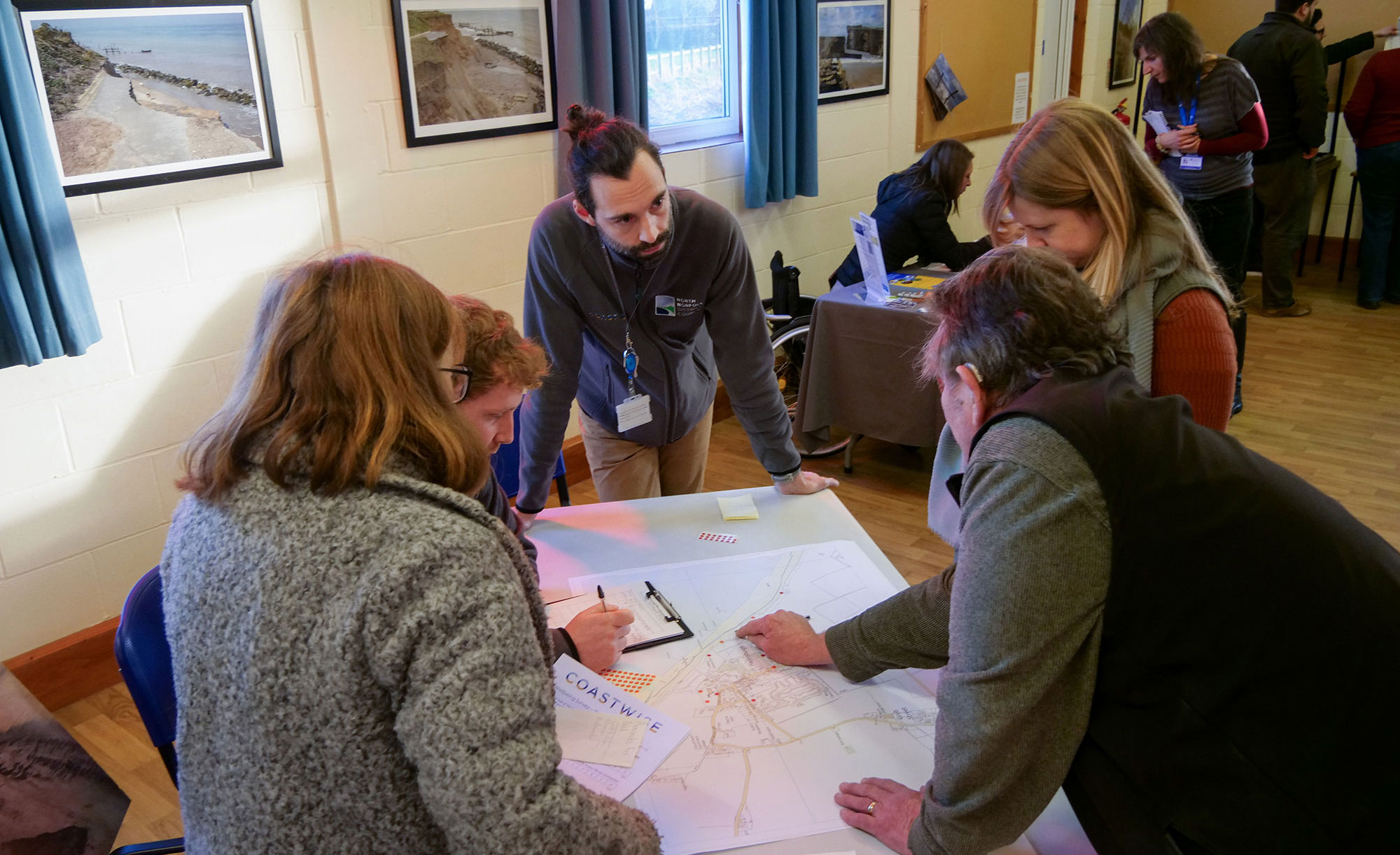Coastwise Cafes
What and where were the Coastwise Cafés?
The cafes took place in Trimingham, Walcott, Happisburgh, Sheringham and Overstrand.
We created the cafes to enable people to explore coastal information, answer specific questions, contribute local knowledge, and engage in discussions with the project team.
 Members of the coastal team at a Coastwise Cafe at Happisburgh
Members of the coastal team at a Coastwise Cafe at Happisburgh People who attended the Coastwise Cafes contributed ideas about ways to engage in future events.
People who attended the Coastwise Cafes contributed ideas about ways to engage in future events.About the events
Coastwise Cafés enabled the team to identify key areas of concern to help focus work priorities, future events, activities and actions and ultimately to develop coastal transition options.
People who attended the cafes contributed ideas about ways to engage in future events, such as drop-in events to provide updates and further input, newsletters, and more information on risk, policy and coastal processes, and potential adaptation options.
Key issues for the community
housing
cliff-top water management
infrastructure
beach and road access
Key findings from the Cafes
Sheringham
In Sheringham, we heard from people in Weybourne, Beeston Regis, East and West Runton who were particularly interested in housing and financial options.
Overstrand
In Overstrand, key points were housing, roads and local connectivity, water management and drainage, options for nature-based solutions, and beach access and safety.
Trimingham
In Trimingham, there was a lot of discussion about water management and drainage, nature-based solutions, and the loss of the coast road. A local working group has since been established.
Walcott
In Walcott, people, including residents of Bacton, were interested in knowing more about financial options, insurance, and the future of the gas terminal.
Happisburgh
In Happisburgh, the key issues raised were housing, beach access, water management and drainage, heritage, particularly the church and graveyard and discussions around sea defences.
Reflections from the Cafes
The evaluation forms for the events showed a high level of satisfaction and identified a need and enthusiasm for ongoing face-to-face engagement and opportunities to get involved.
People were interested in learning more about coastal processes, such as cliff dynamics, climate change and sea level rise, mapping erosion, and more.
The Coastwise Cafés generated a good source of data to get a feel for the sense of place and what is essential to local coastal communities.
The drop-in format provided a space to have interesting, sometimes challenging conversations about the issues faced in some of North Norfolk’s coastal places and start looking toward options for the future.
Resources and further information
Downloads
Find out more
- Visit Coastwise to discover more about the project
- Email us at coastwise@north-norfolk.gov.uk
- Call 01263 513811

